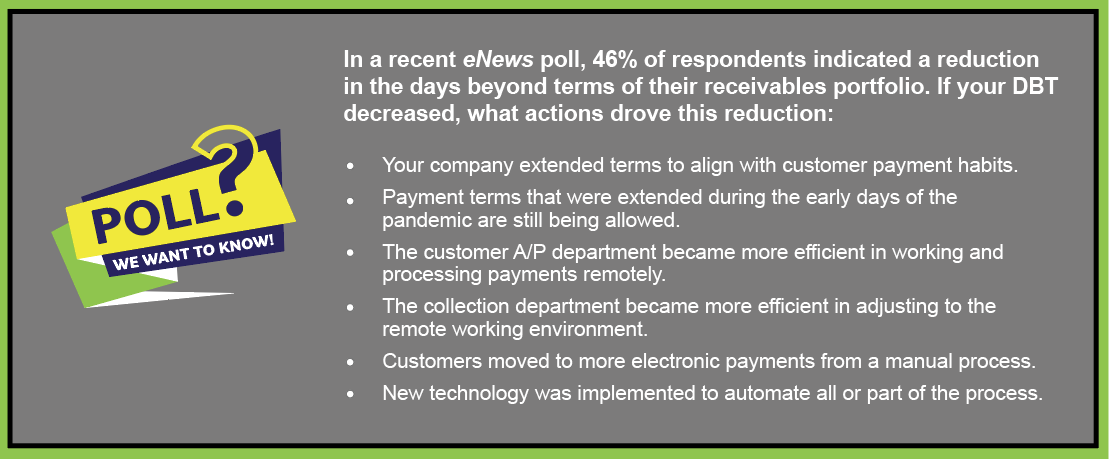
Week in Review
What We're Reading:
Shipping containers meet growing need for sustainable self-storage space, new Census reveals: Demand for storage space—to keep personal items, business equipment, or anything else too bulky to be kept at home or in the office—has continued to increase over the past two years, a new industry Census has revealed. (HSN)
Lithuania urges countries to resist Chinese ‘coercion’: China will target more countries with “economic coercion” unless “like-minded” nations push back, Lithuania’s foreign minister warned Wednesday during a trip to Canberra to open the country’s first embassy in Australia. (Euractiv)
EU reveals €150 billion investment plan for Africa: European Commission President Ursula von der Leyen on Thursday announced funding for investment in Africa worth over €150 billion ($170 billion). (DW)
Helvetia rules out involvement in controversial Adani coal mine: Switzerland’s Helvetia has become the latest insurer to rule out any future involvement in the Adani Group’s controversial Carmichael coal mine project in Australia. (GTR)
EU’s chip production plan aims to diminish dependency on Asia: The European Union announced a $48 billion plan Tuesday to become a major semiconductor producer, seeking to curb its dependency on Asian markets for the component that powers everything from cars to hospital ventilators and game consoles. (BusinessMirror)
Banks face compliance ‘nightmare’ over looming Russia sanctions: The imposition of U.S. and European sanctions on Russia could create an unprecedented compliance headache for financial institutions, legal professionals are warning. (GTR)
Lower asset yields increase ALM loss on Singapore covered bonds: Low interest rates have diminished asset yields on Singapore cover pools, which reduced the excess spread modelled by Fitch Ratings in its analysis of the ‘AAA’ breakeven asset percentage (AP) for the covered bonds issued by DBS Bank Ltd. (Fitch)
Finding value for corporate cash: short-term investments under the microscope: A perfect storm of low interest rates, the pandemic and potential regulation has put pressure on the short-term investment instruments that treasurers rely on for cash management. (TMI)
Must Russia abstain on security council votes regarding the Ukraine crisis: Tensions between Russia and Ukraine have escalated significantly in the past month, with reports of Russian troop buildups and recent U.S. and NATO deployments to the area. (Lawfare)
Cuba, Venezuela and Nicaragua: the US-Russia conflict enters a new phase: As soon as Moscow received an American response to its security demands in Ukraine, it answered indirectly by announcing greater military integration between it and three South American countries, Nicaragua, Venezuela and Cuba. (MEM)
Analysis-world's damaged supply chains brace for painful recovery: Signs are growing that a global supply chain crisis which has confounded central bank inflation forecasts, stunted economic recoveries and compressed corporate margins could finally start to unwind towards the end of this year. (USNews)
Canada posts $137-million merchandise trade deficit for December: Canada posted a merchandise trade deficit of $137 million in December to end a run of six consecutive monthly surpluses, but finished the year with an annual surplus for the first time since 2014. (PH)
Maritime supply-chain crunch should ease in second half: Maersk: Danish logistics giant AP Moller-Maersk has predicted that the current supply-chain crunch, which is clogging up ports around the world, should ease along with record high freight rates in the second half of this year, as the impact of Covid-19 falls away. (CR)
Skills-based hiring is on the rise: Early in the 2000s, a significant number of employers began adding degree requirements to the descriptions of jobs that hadn’t previously required degrees, even though the jobs themselves hadn’t changed. (HBR)
India’s Economic Growth Expected to Slow, but Remain Strong
Annacaroline Caruso, editorial associate
India revised its economic growth prediction for 2022 from 9.2% to about 8.5% as it comes up against more downside risks than previously hoped. However, even at that growth rate, India's economic growth will be the fastest among major economies next fiscal year starting in April, according to Reuters.
"The economy has shown strong resilience to come out of the effects of the pandemic with high growth. However, we need to sustain that level to make up for the setback of 2020-21," Finance Minister Nirmala Sitharaman said while presenting the annual budget to parliament.
India’s government plans to increase spending to 39.45 trillion rupees ($529.7 billion) in the coming fiscal year to support economic growth and improve infrastructure. But because of the increased budget, the fiscal deficit for the current year would be 6.9% of GDP, slightly more than the targeted 6.8%.
“The higher deficits and continued lack of clarity on medium-term consolidation plans in India’s latest budget add risks to Fitch Ratings’ projection of a downward trajectory in government debt/GDP,” Fitch Ratings reported following India’s budget announcement. “Fiscal consolidation tended to fall short of government goals prior to the pandemic, suggesting risks to the medium-term target and debt trajectory.”
In addition to increased government debt, India also must battle unemployment and improve its vaccine rollout if it hopes to prevent a slowed economy. “Currently, we expect that domestic consumption growth will gain momentum after Q2 of 2022, given that about 80% of the population will be fully vaccinated at that time,” according to Atradius.
Atradius predicts India’s food sector will perform above average in 2022, while construction and manufacturing industries are rated as fair. Paper, services and textiles are expected to have poor performance in 2022.
Inflation also poses downside risks to continued strong economic growth in India. On Thursday, “the Reserve Bank of India's monetary policy committee (MPC) stuck to its accommodative policy stance to help the economy recover from the pits of the pandemic, keeping the key lending rate at record lows,” Reuters reported.
-
APRIL
24
11am ET -
Where the Buck Stops: Establishing KYC &
Export Compliance Best Practices
Speaker: Paul J. DiVecchio, principal of DiVecchio & Associates
Duration: 60 minutes
-
Just a Little off the Top: Strategies for Reducing the Growing Cost of B2B Credit Card Acceptance
Speakers: Lowenstein Sandler Partner Andrew Behlmann and
Colleen Restel, Esq.
Duration: 60 minute -
APRIL
29
3pm ET
-
MAY
7
11am ET -
Collections 101
Speaker: JoAnn Malz, CCE, ICCE, Director of Credit, Collections, and
Billing with The Imagine Group
Duration: 60 minutes
-
Author Chat: How to Lead When You’re Not in Charge
Author: Clay Scroggins
Duration: 90 minutes | Complimentary -
MAY
8
11am ET
Burden from the Post-Brexit Era Continues to Weigh on the U.K.
Bryan Mason, editorial associate
Two years have passed since the U.K. left the EU, and the relationship between the two entities remains under stress. Conflict between the U.K. and European nations over importing and exporting rules, border controls, English Channel rights and Northern Ireland protocols have increased complications for the U.K.
“The U.K.'s departure from the EU's Single Market and Customs Union has brought significant disruption to trade, particularly to U.K. exports to the EU, due to new border rules and red tape,” according to Euronews.
New border arrangements still have not been tested with normal passenger volumes and may be further challenged when the EU introduces requirements for passport checks, according to a report from the House of Commons Committee of Public Accounts. The report also finds controls over the movement of goods from the U.K. to the EU have created additional costs for businesses and affected international trade flows.
Other findings include:
- Traders and haulers across the 27 EU countries are not prepared fully for U.K. import controls.
- The government’s arrangements for goods arriving from the EU is untested and could be exploited, increasing regulatory and fiscal risks.
- An effective border will require cross-government digital programs—an area where the U.K. government does not have a good track record.
- Businesses have faced challenges operating under the Northern Ireland protocol.
Trucks have faced queues of up to six miles long on the approach to the English Port of Dover—Europe's busiest port for roll-on, roll-off freight, according to Barron. The delay has been attributed to several factors, including the new customs controls.
Leaders of Brexit acknowledged additional costs on trade goods and imports would occur as the U.K. adapts further, but they uphold the ideal that there would be considerable political and economic benefits from leaving the EU, according to Reuters.
Boris Johnson announced a bill, the Brexit Freedoms Bill, to amend or remove red tape for U.K. businesses to ease regulatory burdens and contribute to the government’s mission to unite and level up the country.
“Elevated inflation, a national insurance hike and rising energy bills are a reminder of just some of the challenges businesses will have to face,” said Tommaso Aquilante, U.K. lead economist at Dun & Bradstreet. According to the firm’s data, between January 2021 and November 2021, the number of business liquidations in the U.K. increased by 19% against the same 12-month period in 2020.
“That said, with four of the nine members of the Monetary Policy Committee who voted to raise interest rates to 0.75%, the Bank of England is committed to limit the erosion of purchasing power driven by price increases and also to bringing inflation back to target [2%]. However, businesses, particularly those that trade internationally or use suppliers that operate in overseas markets, may need to take further action to protect themselves from potential financial risk caused by increases in the GBP/USD or GBP/Euro exchange rates. This includes having a comprehensive view of their suppliers, customers and prospects to identify cash flow risks while also capitalizing on new growth opportunities.”
Expect More Regulations for Cross-Border Trade in 2022
Annacaroline Caruso, editorial associate
Trade regulations change continuously. As policies tighten, it will be imperative that you stay on top of new rules to avoid any compliance issues, said Doreen Edelman, partner and chair of global trade policy with Lowenstein Sandler LLP.
“Companies should be concerned, and they have to get their arms around global trade policy changes, and it has to be done at a C-suite level,” she said. “This is a good time to relook at whatever compliance process you have in place. It doesn’t need to be expensive, but you need to have some kind of program in place because it is a mitigating factor.”
Edelman warned of increased sanctions, national security measures, policies surrounding human rights and export/import controls when doing business across borders in 2022. Some of the latest trade regulations have come out of the U.S., China and Indonesia.
Indonesia’s Ministry of Trade regulations updated its list of goods that are prohibited from being imported to or exported from the country earlier this month. Some newly added goods to the prohibited import list include sugar, ozone-depleting substances and certain foods. Some categories that are newly prohibited from being exported include scrap metal, subsidized fertilizers, mining products and certain agriculture products.
The U.S. Commerce Department also recently made some rule changes. The department added 33 Chinese companies to a red flag list known as the “Unverified List,” the Associated Press reports. That means the companies on the list have new restrictions “on their ability to receive shipments from U.S. exporters and requiring extra diligence from American companies that want to do business with them,” the report reads.
“The ability to verify the legitimacy and reliability of foreign parties receiving U.S. exports through the timely completion of end-use checks is a core principle of our export control system,” Matthew Axelrod, the department’s assistant secretary for export enforcement, told the news outlet in a statement.
If you are interested in learning more about trade policy and regulations, be sure to read the April edition of NACM’s Business Credit magazine.
Week in Review Editorial Team:
Diana Mota, Editor in Chief and David Anderson, Member Relations

